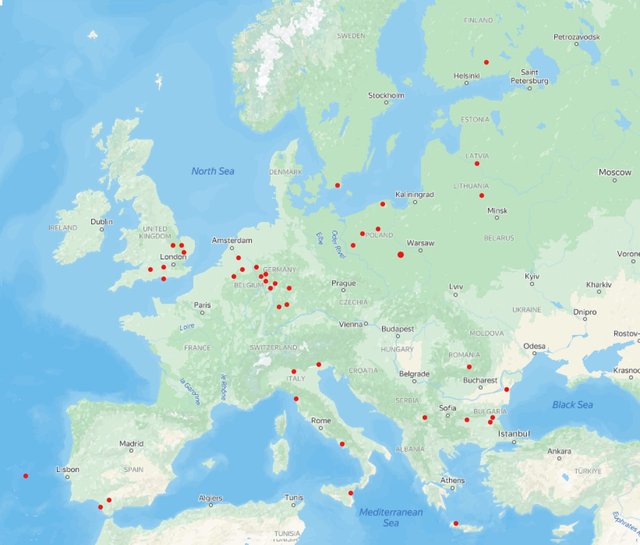Russian Officials Reveal Potential Strike Locations on NATO Facilities Across Europe

In a recent statement, Russian officials have outlined potential strike locations across Europe, targeting NATO facilities as a response to the supply of weapons used against Russia. The map provided shows numerous red dots marking these potential targets, spread across various NATO member countries including the United Kingdom, Germany, Italy, and others. This declaration comes amidst heightened tensions following the use of the non-nuclear Intermediate-Range Ballistic Missile (IRBM) "Oreshnik," which notably has the capability to reach the UK in just 17 minutes.
Strategic Implications
- Deterrence: By showcasing its capability and willingness to strike at the heart of NATO territories, Russia aims to deter further military aid to Ukraine and other nations opposing its interests.
- Political Messaging: This move sends a clear political message to NATO and its allies about the potential costs of their involvement in the ongoing conflicts, particularly in Ukraine.
- Military Posture: Displaying such capabilities reinforces Russia's military posture in Europe, emphasizing that its reach extends deep into NATO territory, which could affect NATO's strategic planning and deployment.
Geopolitical Context
The backdrop of this announcement is the ongoing conflict in Ukraine, where NATO members have provided significant military support to Ukraine. This support has been a point of contention, with Russia viewing it as direct involvement in what it considers its sphere of influence. The mention of legal bounds for retaliation suggests Russia's interpretation of international law, where they might claim self-defense or retaliation against what they perceive as threats or aggression.
NATO's Response
NATO's response to such threats typically involves reinforcing its eastern flank, increasing surveillance, and possibly deploying more assets to member states closest to Russia. This could lead to an arms race or further militarization of Europe, which might escalate tensions rather than resolve them.
Public and Political Reaction
The public reaction across Europe varies, with some viewing it as a necessary show of strength by NATO, while others see it as escalating a potentially catastrophic situation. Politically, this could lead to calls for increased defense spending, more robust alliances, or even negotiations for de-escalation.
Conclusion
The map of potential strike locations is more than just a military statement; it's a geopolitical chess move. It pressures NATO to reassess its strategy, potentially pushing for either a more aggressive stance or a diplomatic solution to avoid direct confrontation. The effectiveness of this strategy will largely depend on how NATO and individual member states respond, balancing between deterrence, diplomacy, and the risk of escalation.
This situation underscores the delicate balance of power in Europe, where historical rivalries, modern alliances, and current conflicts intersect, making each move on this geopolitical board critical for peace or further conflict.